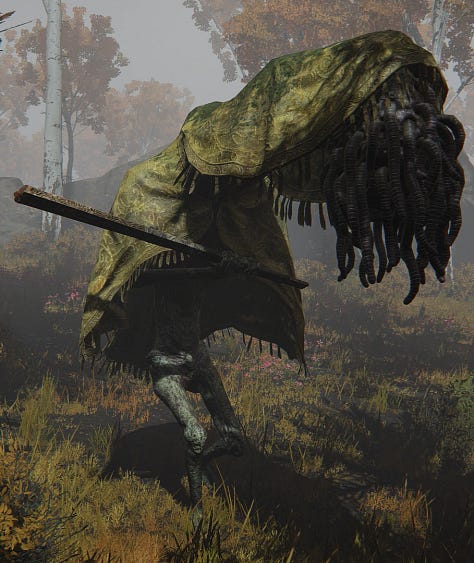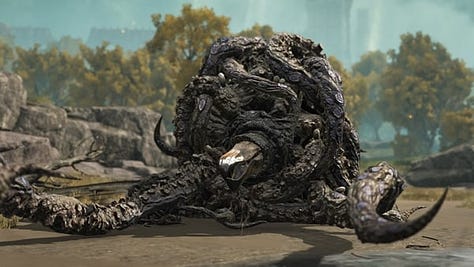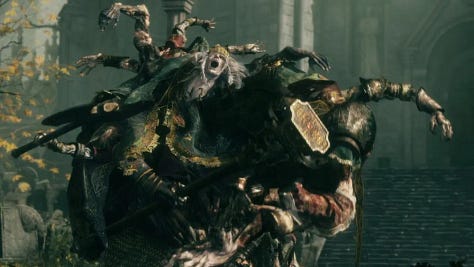This spring, I quit my job. I was doing marketing and comms for a local YMCA. Before that, I was coming off of a chain of unbenefited service work and contract jobs. I needed money and health insurance. It’s the kind of compromise I generally detest in others, but I told myself I might be able to make this Y a better place and get skills that would help me pivot to something else later.
My job was mostly ghostwriting emails and updating the website. I helped plan events. I sat on a bullshit DEI committee. After 5 months I was served by my boss, the CEO, with a disciplinary document. This memorandum of understanding outlined that I was being forbidden, under threat of further disciplinary action, from discussing, no joke, “topics that tend to have different types of opinions.” I wish I could say this was related to my anti-imperialist & abolitionist politics, but I’m fairly certain it’s because I kept pushing for more accessible financial aid policies and I don’t believe in god.
The leadership of this Y is exclusively upper-class-wannabe white women, almost all of whom live outside of the area they serve. They underpay their employees. They give themselves generous raises. They cozy up to local bankers and construction magnates, who then serve on the board and act as sponsors. Their fundraisers are a catered benefit dinner and a golf tournament. The disciplinary memo was the last straw.
While unemployed I stayed busy. I did a little light carpentry and other handiwork to help with bills. I applied for SNAP. I played guitar. I smoked weed and walked around. I even read some. But day after day, for hours, I just played Elden Ring.
That I might spend so many hours on one game is no surprise. Playing the same game for 3 to 6 hours straight has always been my go-to method of dissociating. This started when I was a child, naturally. Socially ostracized and physically inept, I could think of no better way to spend my time. I craved it. When I started smoking in my mid-20s, I found that weed makes it even easier to reach that perfect blank mindstate, so barely there that I stop blinking and have to consciously will myself to get up to piss instead of just holding it.
Perhaps you’ve heard of Elden Ring or one of the other games the Japanese game developer FromSoftware has made (Dark Souls, Bloodborne, Sekiro). Story-wise, these are, by and large, tales of confusion, terror, and bloodshed in worlds long past their so-called glory days. Full of ambiguity and committed to obtuse, ambient storytelling, they are games about the aftermath of empire, the annihilation of the self, the necessity of change, and the stagnation that accompanies all attempts to forestall entropy. Most of the characters you meet long for the restoration of the fallen world and hope that you’ll be the one to deliver it, just like your predecessors. Your job is to kill the old world, its gods and its demons, absorb their power, and then decide: begin the cycle anew, or push off into the darkness of the unknown.
That kind of story might resonate for you as much as it has for me, and certainly, the nature of Elden Ring’s themes goes a long way toward explaining why I’m so stuck on it. The world sucks right now, especially if you’re a working person. In my new job, I hear from people all the time who can’t pay their bills. They’ve never been in this situation before. They owe the utility company hundreds to thousands of dollars. They can’t make their rent payments. They don’t know anyone who can help. I’m one of the lucky ones, but I still filed for bankruptcy last year. This summer my partner and I had to take on more debt to fund a move into the hills, since we could no longer afford rent in the town where we used to live. We share one aging pickup truck that needs new tires and costly regular maintenance.
The quality of life for many in this country is on the decline. Wealth inequality is only getting more severe, if you can believe it. Many of the systems we depend on to provide for our basic needs are also wealth transfer machines making the rich richer. Then there’s climate change, which, jesus christ. We’re fortunate to have avoided the worst of the flooding in our area this year. I know we won’t always be so lucky, and neither will you.
In trying to devour the earth, capitalism is cannibalizing itself. The owning class simply won’t give up on the dream of infinite growth. The 20th century compromise between workers and owners has been obsolete for a long time, replaced instead by magical reasoning and a manufactured consensus that prioritizes corporate profits at the expense of all else. The swarm of idiots trying to get rich before the world burns drove the dot com bubble, the housing bubble, the tech boom, the crypto crash, and the hype-driven AI bubble. Meanwhile, at the “bottom,” many still believe they’ll get rich by working unpaid overtime and not taking vacation days—or they play the lottery.
Whatever all this means to you is primarily a product of your worldview. If you’re in the privileged position of having a warm home, enough food, and clean water, you probably relate to the polycrisis more as an emotional-psychological object than as a material emergency (at least for now). Maybe you try not to think too much about it. Maybe you’re pretty sure it will be solved technologically. Maybe you spend many of your days grieving.
For me, this shit hurts. It sits in my chest and for weeks on end I can scarcely think of anything else. It intrudes upon my waking thoughts and seeps into my dreams. Everything—road work, advertisements, a particularly bucolic creek in the woods—reminds me of the indignities and violences being heaped upon the earth and its inhabitants every day. It pisses me off. It disgusts me. I go on digressive rants in the middle of conversations with near strangers.
I often wonder to myself how anyone else lives with it. At my new job, a client who makes $100 a week cutting hair out of his house is behind on rent and about to have his electricity shut off. He tells me that everything happens for a reason. I find this way of thinking misguided, obviously, but I’m also a little jealous.
Like many of the chronically depressed, I’ve found a lot of comfort and guidance in buddhist concepts and teachings, especially this year. Buddhism1 provides both an account of suffering that is more or less accurate to my experience and some apparently helpful methodologies for addressing it without ignoring the way the world actually is. That said, I was raised an evangelical Christian, and I long, on some level, for the kind of apocalyptic fury that puts the world right and settles all accounts. I want the fuckers to burn, even if it won’t do any good, even if death makes punishment irrelevant.
In this context, playing Elden Ring has been something of a meditative practice with intense eschatological violence as its subject. The final boss of the game is an incarnation of reality itself, the being whose will gives the world shape.
If you’ve only heard of these games, that they are difficult might be one of the only things you’ve heard about them. There are no difficulty settings. Your character dies a lot. You might need to do the hardest boss fights 50-100 times—carefully observing their attack patterns, learning where the openings are, and trying new strategies—before you finally achieve victory. Naturally, this can be intensely frustrating, which is intended. The world is hostile to you, and your character isn’t some uniquely gifted fighter. The difficulty isn’t arbitrary, however, and the games’ mechanics are so precise2 and so varied that it is only ever a question of how you’ll eventually manage to succeed.
This feeling of struggle transforms into deep satisfaction when you finally kill the rot goddess who’s been kicking your ass for the better part of 3 hours. You bask in your own success, and then it’s on to the next fight. While I applaud the depth of RPGs that allow you to progress without killing, provided you’re clever or dedicated enough, that’s not generally a feature of FromSoft’s world. In Elden Ring, it’s kill or be killed. You’re a deicide or you’re nothing. This is key to the fantasy, and it’s also what makes playing and replaying the game so compelling. You know why you’re there (cool fights, medieval fantasy drip, big sword, etc) and the game knows, too, but nothing comes easily. Along the way you find spells, weapons, and trinkets that can completely change the way you play the game, and there’s no way to experience them all in one playthrough.
Elden Ring’s story remains stubbornly obscure throughout. There is no lore dump, no codex, no cutscene that will give you all of the pieces in an authoritative manner.3 Some pieces of information seem contradictory. Others are closer to myth. The game’s story is 100 thematic ideas locked in (sometimes literal) combat with one another, just begging to be critically examined. The more you see of the whole, the more you understand the particulars and develop your own relationship to the game and its world.
Much like our own, the Elden Ring’s is a world built on conquest, genocide, and betrayal, full of zealots, murderers, and profiteers. Still, you’ll meet friends you can depend on. Many of the people you meet have agendas, and you come to see characters differently as your own priorities change and the world responds to your actions. Unlike many RPGs, the player is not given the option to be good or evil. Every hero is another’s villain. Most endings are morally ambiguous depending on your perspective, and there’s no clear “good” ending. As with the gameplay, Elden Ring’s story elements respect you as a player by abandoning you to your own devices.



All fantasy worlds resemble our own in key aspects, and all role-playing games succeed by giving players agency in that world. What makes these games different is that they’re sick. They’re violent and perverted. Everyone in them is a somehow insane. You’re frequently ambushed. The enemies are usually monstrous or grotesque, and there’s always a disgusting poison swamp or two. Worm-spitting corpse monsters, enormous vaginal dragons, hostile sentient viscera. The description for one weapon’s special move reads as follows: “Raise the sacred spear and pierce the body of the Formless Mother. Stab up to three times, creating explosions of blood with each thrust. This skill will coat the armament with bloodflame for a while.”
The gameplay is just kill kill kill. Enemies respawn when you rest or die. The main focal point of every area and every dungeon is a fight. To quote my wolf friend Blaidd, “the way ahead is pleasingly simple. We fight, sword and fang.” Beyond just cathartic, I find this comforting. Elden Ring takes the twisted logic of violence in our own world and twists it further until it breaks. You want to kill god and start over? Here’s a halberd—have at it.
I am smart enough to realize there is no mysterious them out there doing violence to a clearly delineated us. The people of this earth have decided to displace, rob, and kill one another and have invented a million masks and machines to make it easier to bear. I delight in the world. I love the earth and its creatures—including people—in whom I consistently see beauty, generosity, and kindness. And I affirm the right of all things, people included, to exist even if they are not kind or beautiful or generous. As a marxist I can try to see the world materially, but this only goes so far. I cannot escape the feeling that there is something fundamentally fucked up about us and there’s no way to fix it.
My pain, of course, is mine, and I cannot hold the world’s people responsible in any totalizing or objective way; this chasm where moral outrage should be seems only to heighten my despair. It is me who cannot bear reality. I am owed no explanation. I am the one who takes all this information into myself and judges it unconscionable. We are all just here, for reasons beyond our control, in a world in which all living things must attempt to survive until the day they inevitably fail. What we do matters only to us, if that. I am left to triangulate my life between the utter void of meaning that follows my death, the absolute authority over meaningmaking that I possess on my own behalf, and the confused emotional, social, and intellectual consequences of the web of processes that brought me into being alongside everything and everyone else.
Since I started writing this, new wars have started. New disasters have changed innumerable lives and ended many others. I’m still playing Elden Ring. I play when I could be writing, reading, or drawing. I play when I should be working or making food. This is a definite privilege. That I can afford the equipment is a luxury,4 and part of me feels ashamed to drown out my grief and rage with gaming, of all things, instead of “action” or whatever.5
Playing video games is, more than most hobbies, widely considered a waste of time. I’d go so far as to say it is definitely a waste of time. Gaming is frequently derided as childish, unproductive, and frivolous. Respectable leisure is supposed to be something like knitting, rock climbing, or cooking; something that contributes to society, makes you hotter, or might one day make you money. Getting really good at a video game is the real life version of studying underwater basketweaving. Are any of the skills transferable to real life?? You’re lucky if they’re even transferable to other video games.
More and more, it is precisely this that I love about gaming. What’s more pointless than art? What could be less productive than disappearing into your favorite works? People spend hours on puzzles, and I spend hours making a lady roll around and swing a sword. I’m sick to death of society and my supposed obligations to it. I don’t want to improve myself measurably or make myself more marketable. I don’t want to make the world a better place or make a difference in the lives of others. I want to smoke weed and help a four-armed doll with the soul of a fratricidal demigod overthrow the order of the world and usher in a millennium of uncertainty and doubt. I mean, just look at that hat.
I found this really interesting master’s thesis from 2017 by Paolo Xavier Machado Menuez called The Downward Spiral: Postmodern Consciousness as Buddhist Metaphysics in the Dark Souls Video Game Series. One of the chapters concerns “the Buddhist apocalyptic concept of mappō, or the end of the dharma.” Here’s a short description: “Mappō was an extremely influential concept in the Kamakura period, which was like our own times a period of profound societal transformation. Mappō refers to the idea that the teachings of the buddha have lost their efficacy and people can no longer rely on their own efforts to attain enlightenment. What follows is that the clergy and monasteries become incontrovertibly corrupt and people subsequently become unable to leave samsara, trapped in a series of increasingly degraded reincarnations.” To anyone who has played these games, the concept of mappō is instantly recognizable as similar to the core themes of many of FromSoftware’s games.
This probably won’t make much sense unless you’ve at least seen the gameplay. The consensus view is that it is precisely the difficulty and the precision that most players find so compelling about this game. You are punished remorselessly for your mistakes and rewarded with a sense of mastery for well-executed play. “Well-executed” can also mean many things. Thoughtful, meticulous, or just highly responsive play. The combat can resemble something of a dance, or you can succeed through spell casting or any number of other methods. Many players put additional strictures on their play to add to the difficulty. The fact that I and many other players enjoy doing runs where you never level up—that that is even possible—is a testament to the design of these games, IMO.
Much of the game lore is not even diegetic to the game world. It’s just vague references found in item descriptions that you read in your inventory menu.
When I began this essay, I was still playing all my games on a PS4. I’ve since purchased a PS5, which felt like an insane splurge despite the fact that it took me many months to save up the money. I could have done something useful with that money (like buy drugs), but I don’t care.
At least is isn’t television…?









The hat IS very cool!